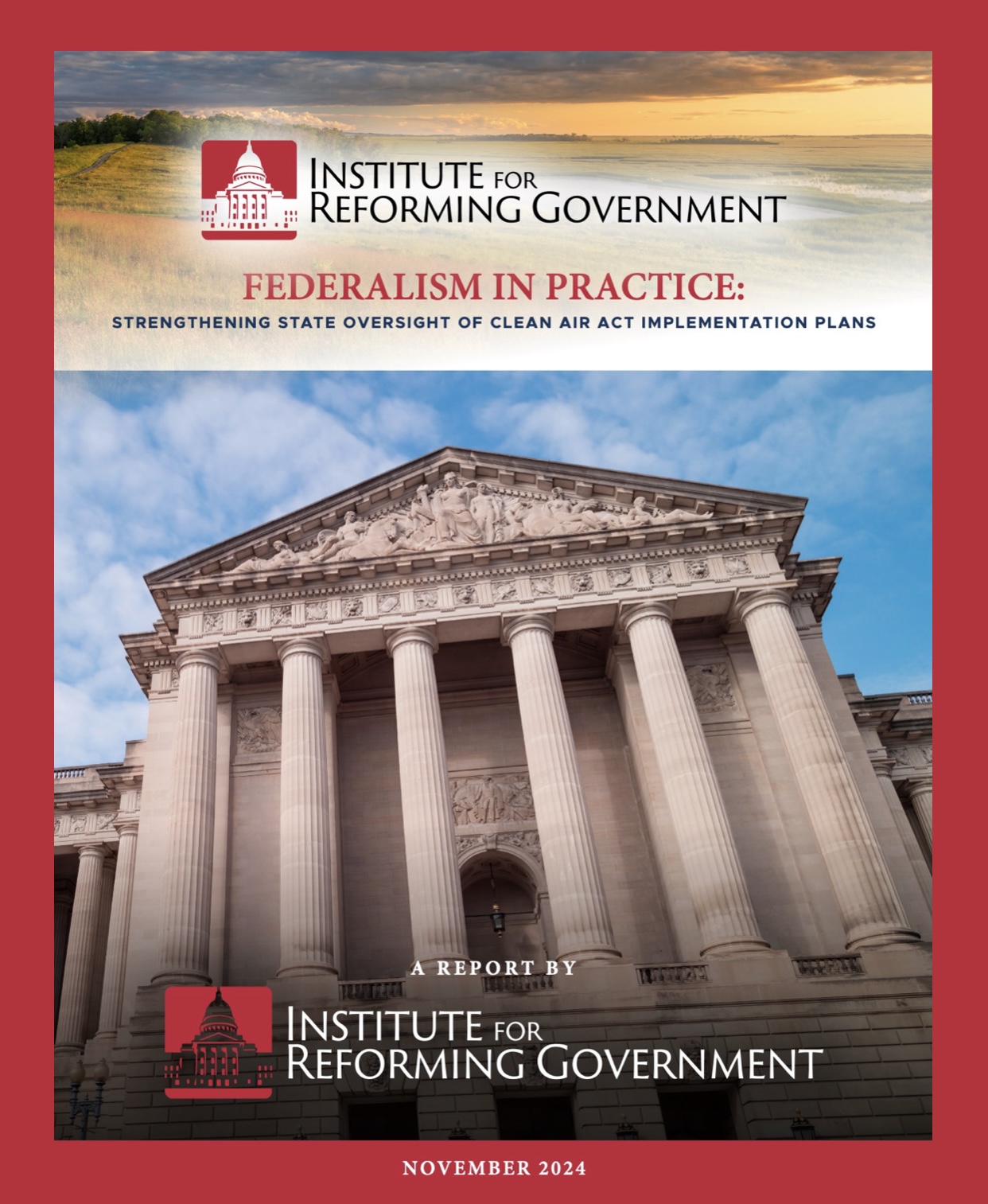November 19, 2024
No Regulation without Representation
IRG finds the current process to approve Wisconsin environmental regulations gives unelected bureaucrats complete control with essentially no opportunity for proper oversight
DELAFIELD, WI: Today IRG’s Center for Investigative Oversight (CIO) released a report analyzing the Wisconsin Legislature’s ability to exercise oversight over State Implementation Plans (SIPs) required under the federal Clean Air Act. While the Legislature has at times tried to exercise some oversight over SIPs, the complex nature of the requirements under the Clean Air Act and the ongoing threat of the EPA imposing Federal Implementation Plans (FIPs) has resulted in many rules approved with little input from the Legislature.
Key Recommendation: Model legislation proposed in this report would lead to robust oversight of the SIP process. This new model legislation proposed by IRG returns the balance of power back to the people and ensures that elected officials can effectively exercise oversight over proposed environmental regulations.
IRG’s Findings: IRG reviewed eleven proposed rule revisions. The overall health of oversight is concerning. Eight out of eleven, roughly 73%, of the analyzed revisions did not achieve any of the three legislative oversight benchmarks detailed in the report. The Legislature did not take executive action on these eight, did not modify any of them, and did not hold a public hearing, or if a hearing was held, none of the committee members attended the hearing.
Why It Matters: Revisions to Wisconsin SIPs are proposed by the Wisconsin Department of Natural Resources and go through a review process conducted by the Legislature. It is crucial that rule revisions, which affect Wisconsin businesses and families, go through strong oversight from the Legislature to ensure that they avoid evolving into unduly burdensome regulations and unjust policies.
The Quote: IRG’s General Counsel Jake Curtis:
“In addition to state level reforms, the Trump Administration and the Republican Congress should reform the Clean Air Act to give states more flexibility to implement Clean Air Act requirements consistent with state capabilities. The threat of federal implementation plans should not be used as leverage to force the adoption of state implementation plans that exceed state capabilities and/or result in significant economic impacts and implementation costs.”
###
The Institute for Reforming Government is a non-profit 501(c)3 organization that seeks to simplify government at every level by offering policy solutions to thought leaders in American government in the areas of tax reform, government inefficiency, and burdensome regulations.
To learn more about the Institute for Reforming Government, click here.

